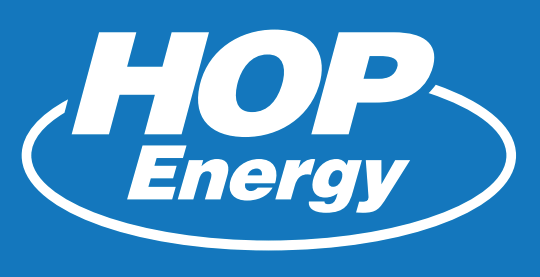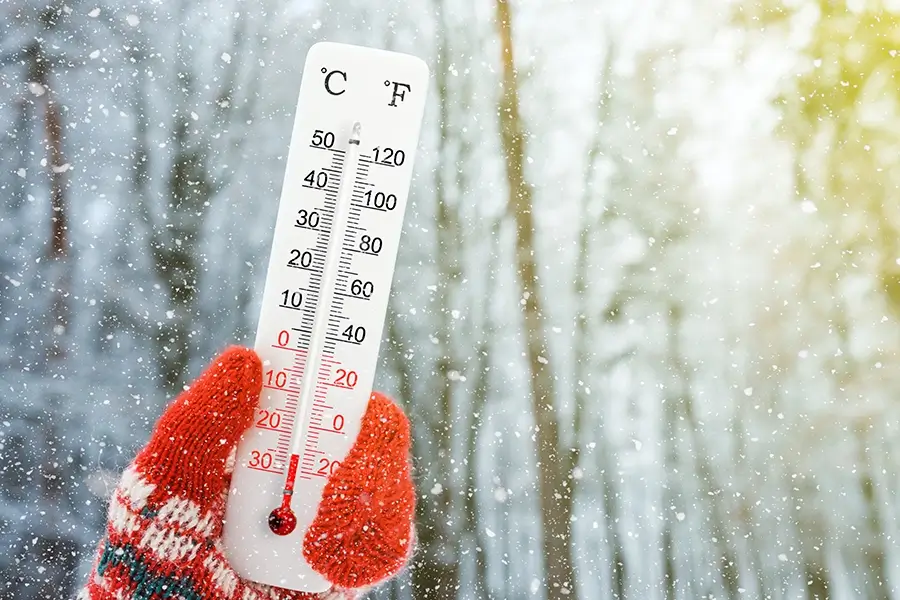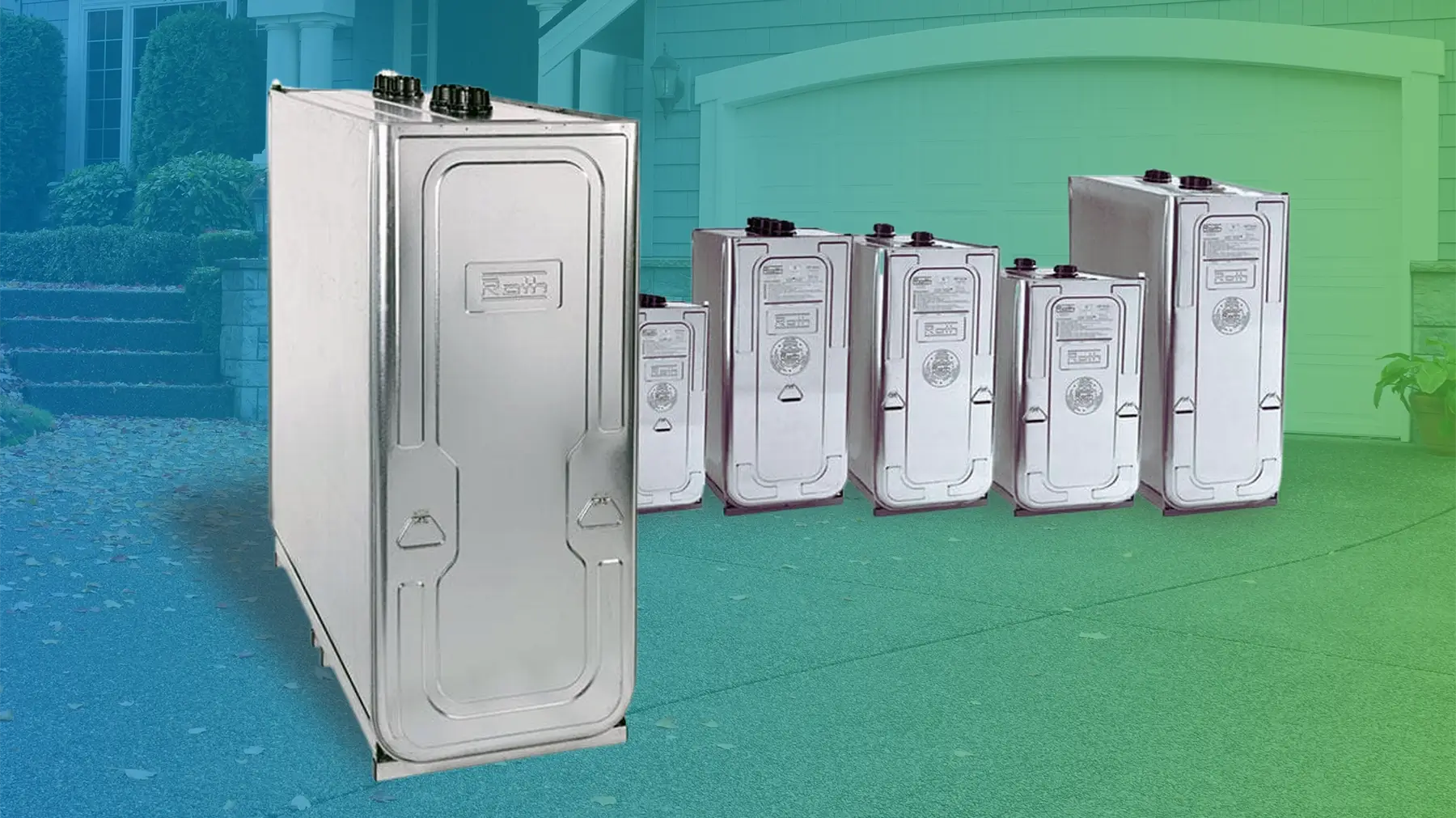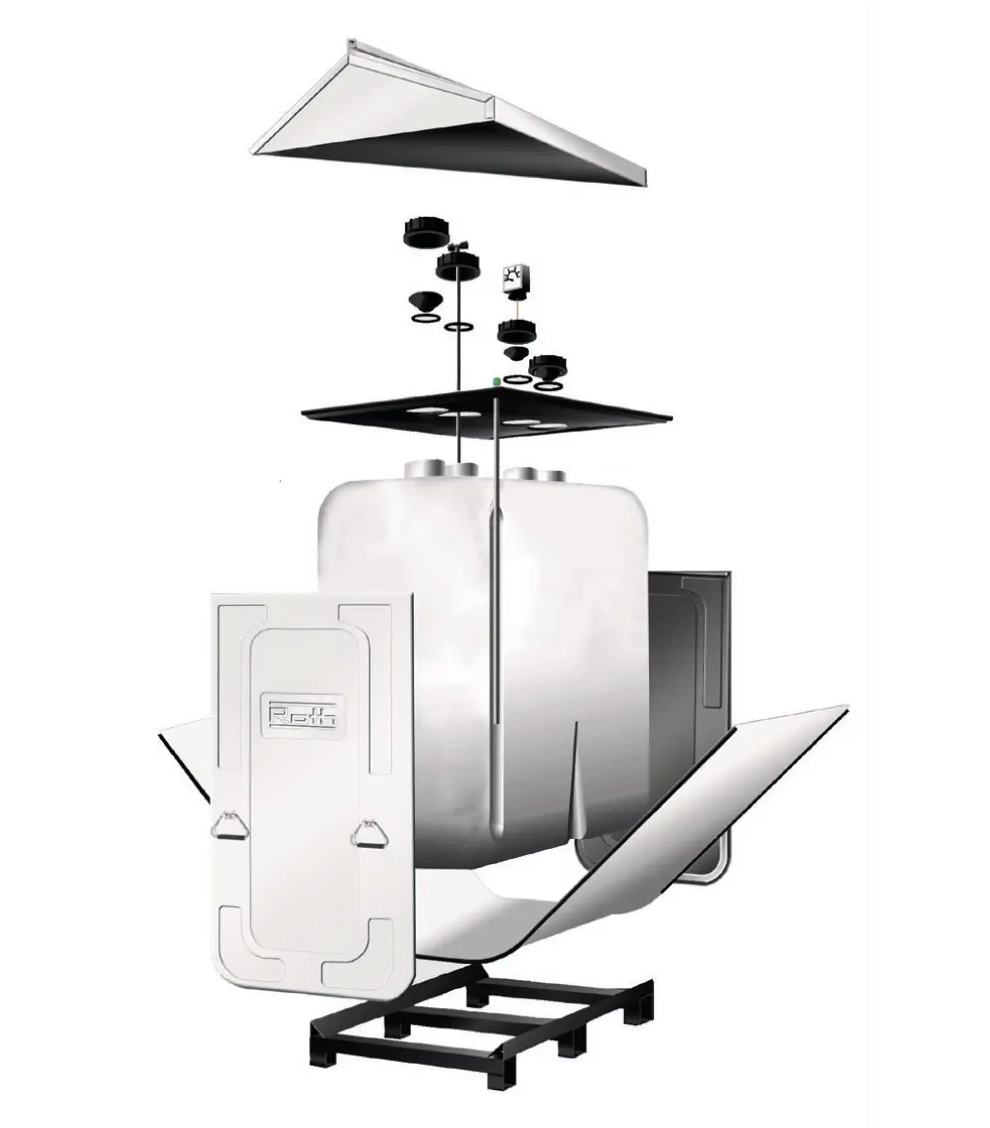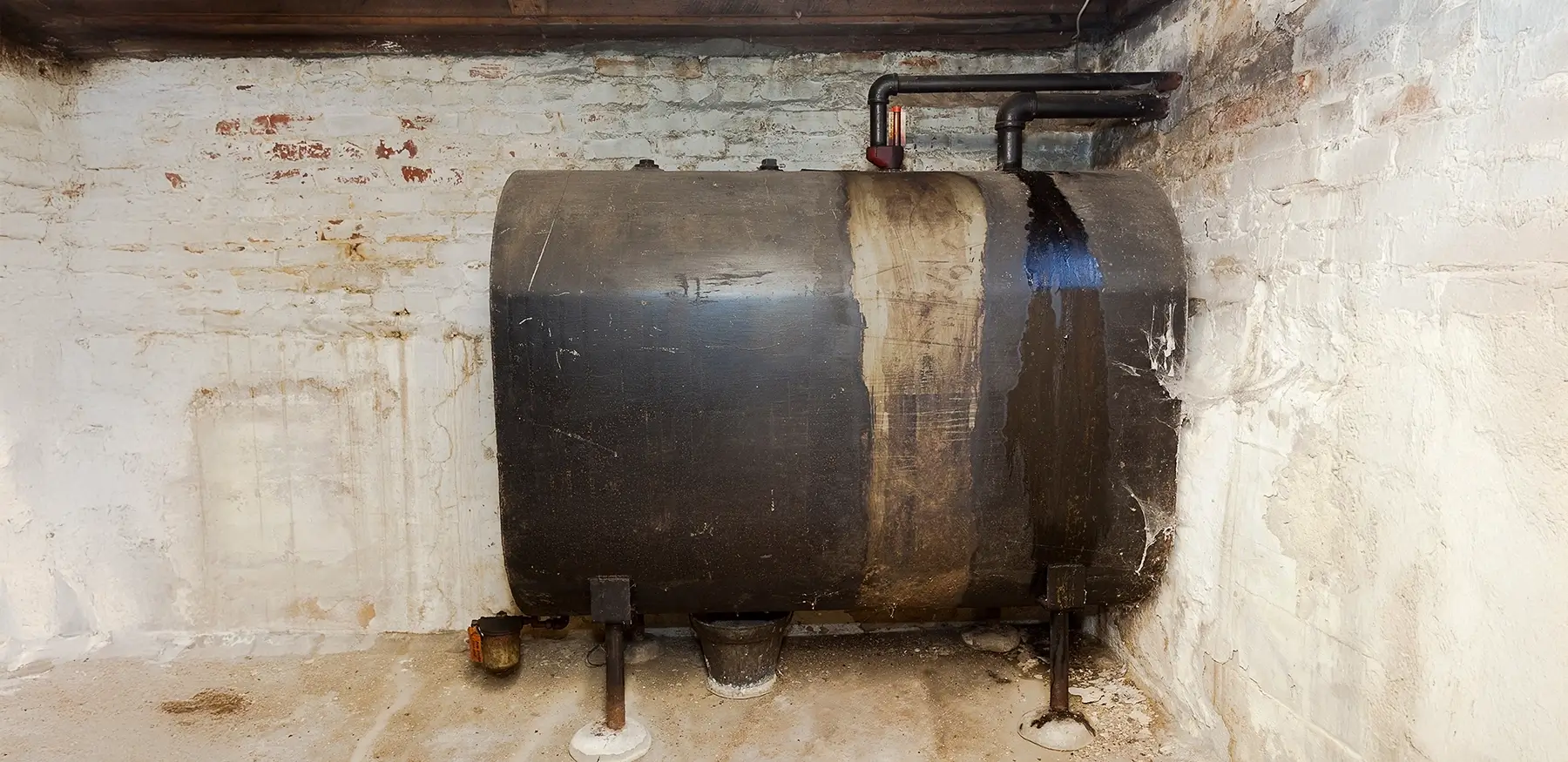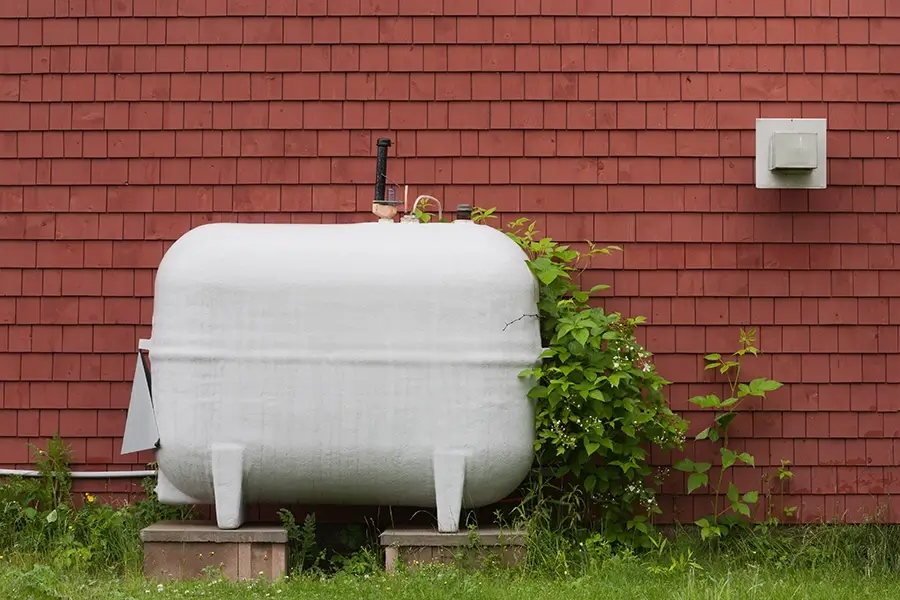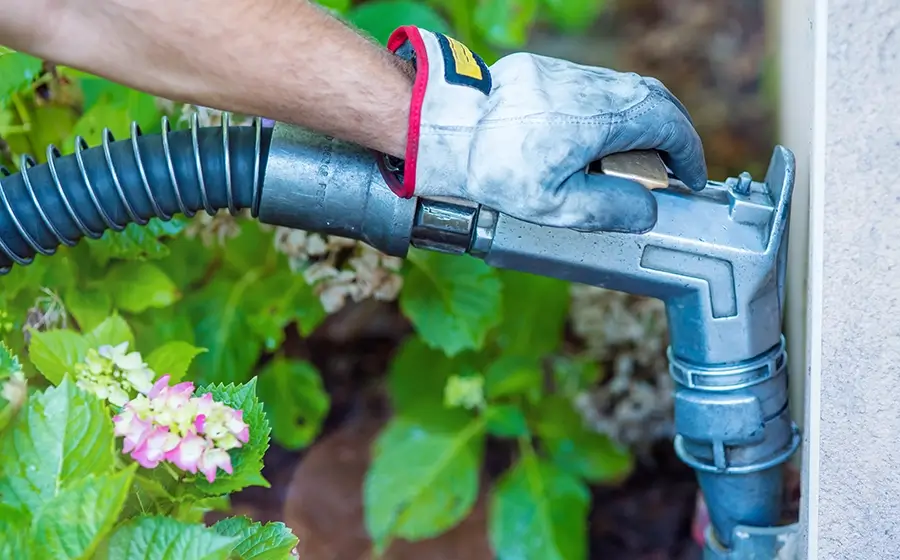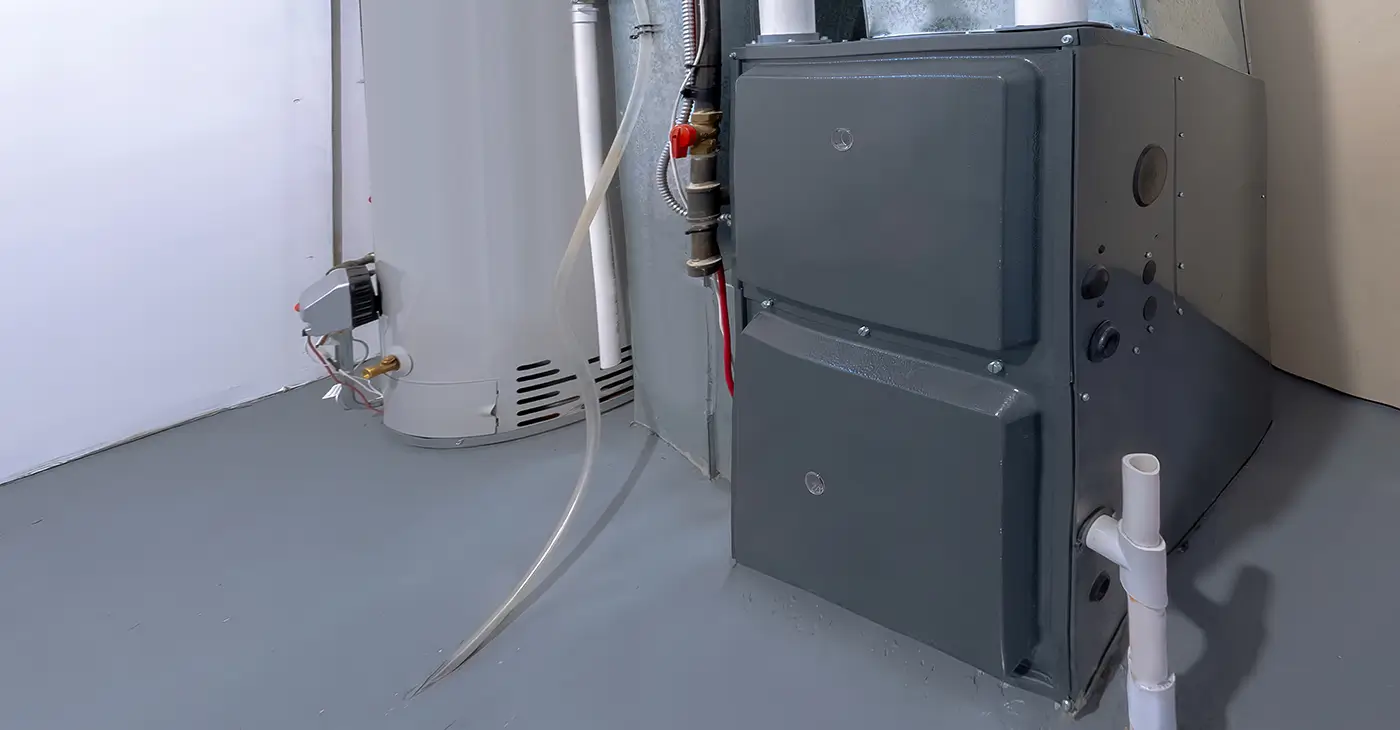Your air conditioner worked hard all summer keeping your home cool, and now it deserves a little winter vacation. Winterizing your AC unit isn’t complicated, but it is important. A few quick steps can help prevent rust, debris buildup, freezing damage, and surprise repairs when you turn the system back on in spring.
Below, our heating and cooling specialists walk you through how to winterize your AC system, when it actually matters, and a few myths worth clearing up along the way.
How to Winterize Your AC Unit: Step-by-Step
1. Shut Off Power to the Outdoor Condenser
Locate the disconnect box next to your condenser and flip the switch to OFF. This prevents the unit from randomly kicking on during a mild winter day, which can pull in water or snow and cause freezing damage.
2. Clean Off Leaves, Dirt & Debris
Grab a hose (on a warm day) or use a soft brush to clear away:
- Leaves
- Sticks
- Grass clippings
- Built-up dirt
A clean condenser is less likely to trap moisture or develop rust through the winter.
3. Inspect the Unit for Visible Damage
Look for:
- Cracked insulation
- Bent fins
- Loose panels
- Rust spots
A quick inspection now helps avoid bigger issues when you start up your system in spring. If anything looks off, HOP can help with AC repairs before winter hits.
4. Insulate Exposed Refrigerant Pipesl
Use foam pipe covers to protect exposed lines from freezing. This is especially important in the Northeast, where winter temperatures can drop fast.
5. Cover the Top (Not the Whole Unit)
This is where homeowners often get mixed advice.
A full AC cover can trap moisture and invite mold or critters. Instead, use a breathable top-only cover to keep snow and ice from piling directly inside the unit while still allowing airflow.
If your condenser sits under a roof overhang, you may not need a cover at all.
6. Check the Area After Big Storms
Every few weeks, especially after a nor’easter, brush off heavy snow buildup. You don’t need to baby the unit; just keep it from being buried under a winter’s worth of slush.
Do AC Units Need to Be Winterized?
Short answer: Not always — but in cold climates, yes.
Your AC system is designed to live outdoors. It can handle rain, snow, and temperature swings. But winterizing helps prevent:
- Ice buildup
- Cracked insulation
- Rodent nesting
- Corrosion
- Spring startup issues
What About Heat Pumps?
Note that if you use a heat pump, this article isn’t for you. Heat pumps run year-round and should not be covered or shut off. Learn more about heat pumps here: How to Use a Heat Pump to Supplement Your Whole Home Heating System.
How Do I Prepare My Air Conditioner for Winter?
Here’s the quick checklist homeowners can follow each fall:
- Turn off the condenser power
- Remove debris
- Inspect for damage
- Insulate exposed pipes
- Add a top cover
- Clear snow after storms
You can do it yourself in under 30 minutes, or you can leave it to the pros during your annual HVAC service visit.
What Is the $5000 AC Rule?
The “$5,000 rule” is a guideline used in the HVAC industry to decide whether you should repair or replace an air conditioner.
Here’s how it works:
Age of the system × cost of repair = replacement decision.
If the total is:
- Under $5,000: Repair is usually worth it.
- Over $5,000: Replacement may be the smarter investment.
Example:
A 12-year-old AC with a $600 repair estimate: 12 × $600 = $7,200
That’s over the threshold, so replacement is often more cost-effective.
If you’re ever unsure, HOP’s technicians can evaluate your system and give you a clear recommendation.
FAQs
You can, but you shouldn't. Even brand-new units benefit from basic winter prep to prevent premature wear.
No. Full covers trap moisture and encourage rodent nesting. A top-only cover is best.
Once the condenser is shut off, keep it off until spring. Running AC in freezing conditions can cause damage.
Some manufacturer warranties require regular system maintenance. Keeping your AC clean and protected can help keep your warranty valid.
Besides prepping your AC unit for cold weather, winterizing your HVAC system should also include prepping and testing your heating system. This means replacing the furnace filter, testing the heat, and scheduling a tune-up to check burners, safety controls, and overall performance.
No, heat pumps operate in winter. Do not shut off or cover a heat pump.
The Bottom Line on Winterizing Your AC Unit
Winterizing your AC is one of the simplest ways to protect your system, reduce wear, and make sure everything starts smoothly when warm weather returns. A few quick steps in the fall can help you avoid repairs, extend your system’s lifespan, and keep your HVAC system running efficiently year after year.
For additional system care, you can also check out our HVAC maintenance services or contact us to schedule a tune-up.
